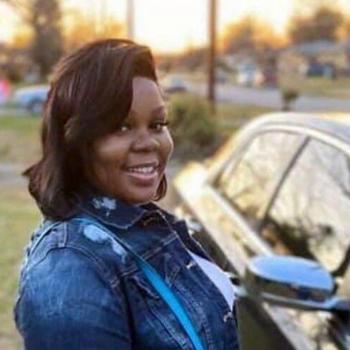Am I the only one who noticed that Americans didn’t care about ebola until there was actually the threat of people here in the U.S. catching it? For most of the summer there was little focus or interest in it at all, and I suspect most Americans processed it in the way they might another drought in the Sudan. I followed it because when I first heard of ebola some years ago it made a huge impression on me, and became my go-to bogey disease. But everyone else didn’t seem to pay much attention.
In fact, when Obama announced on September 16th that he was finally going to do something about ebola—sending supplies and relief to West Africa—conservatives offered harsh criticism, and many others agreed, wondering why it made sense to focus attention on some “disease in West Africa” when there was ISIS to contend with. Of course, conservatives are now excoriating Obama for not acting soon enough. And I actually agree—Obama should have sent supplies and relief and worked to foster a stronger international response much sooner—but then, I remember what conservatives said when Obama first announced U.S. action.
Conservatives’ approach to ebola is political, but there is something else to be learned from our nation’s response to ebola, and it has to do with diseases and undesirables. See this image, for instance:
Text:
Pres. Reagan ignored AIDS until 20,049 Americans had already died. But tell me again how Obama’s immediate response to 3 ebola cases has been inadequate.
I want to make a slightly different point from the one made by the image. I want ask why didn’t Reagan didn’t act to combat AIDS until tens of thousands Americans had already died of it. The answer, I think, is simple: The people dying of AIDS were predominantly gay individuals, and gay individuals were considered undesirable, or less than. In fact, Reagan did not take action until individuals who were not gay, including children, began contracting AIDS (often through blood transfusions).
But I also want to remind readers that Obama didn’t act until over 2,400, mostly West Africans, had already died of ebola. Yes, these were people outside of the U.S., but that’s part of the issue—many Americans also see the poor in developing countries as less than. It’s easy to treat them as Different From Us, and ignore them and their pain. And so in a similar sense, most Americans did not see ebola as a threat until it came to Dallas, Texas—until it became a threat to Americans here in the U.S.
This is a bad idea even in a purely self-interested sense. Diseases spread, whether it be AIDS or ebola, and eventually it will no longer be the undesirables who sicken and die. But it is also wrong on a moral level. Now yes, I understand that it can sometimes be hard to care when there is so much wrong in the world, and when caring hurts. Can we care about trafficked girls in Thailand, violence against trans individuals in our own country, child soldiers in the Congo, and migrant workers in here in the U.S., and slum dwellers in Brazil without losing our sanity?
We create borders around the swaths of humanity we care about and the swaths of humanity we don’t. We need to widen those borders, especially when U.S. policies frequently affect those far, far beyond the swaths of humanity we identify as our own. We need to care about violence against trains people and the trafficking of girls in Thailand—and we need to care about a disease like ebola long before it touches our own.
My ideal world is one in which these borders are torn down.















